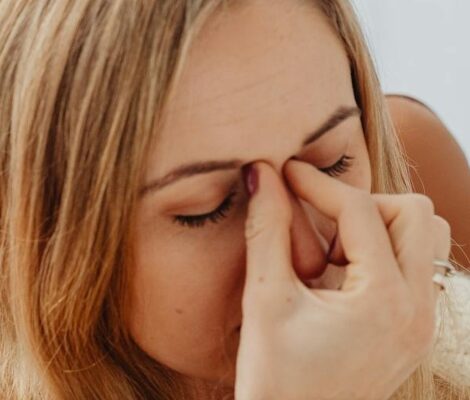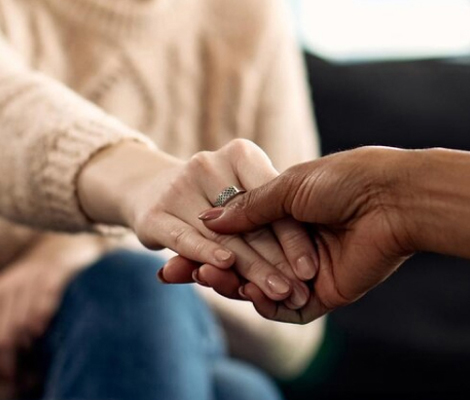Do you ever catch yourself daydreaming about the times you used a substance? Do you ever feel it wouldn’t hurt if you used it just once more? Have you gradually started neglecting your personal appearance lately? These types of thoughts and behaviors might leave you wondering whether they are signs of relapse or just a normal part of the recovery process. We Level Up Treatment Centers will explore subtle addiction relapse warning signs and help you stay sober and on the right track.
Skip To:
What are the addiction relapse warning signs during addiction recovery?
You might relapse even when you are doing well. This is why you should be aware of warning signs that are not that obvious. Recognizing these subtle signs will help you prevent relapse:
- Neglect of recovery practices
- Increasing mental health symptoms and neglecting personal appearance
- Romanticizing past substance use
- Belief in the harmlessness of “just once” use
- Withdrawing from social contacts and losing interest in hobbies
- Boredom
- Denial and turning to other compulsions
- Addictive thinking and returning to old habits

Neglect of recovery practices
Drifting away from your support system or not attending important recovery activities is an important sign of relapse in addiction recovery. Your sponsor is a person who guides you toward sobriety and helps you face the challenges during recovery. Neglecting your sponsor and figuring out ways to avoid contact could mean that you are not on the right path, and since relapse rates are approximately 50% within the first 12 weeks after treatment, this is something you should pay attention to.
Get Help. Get Better. Get Your Life Back.
Searching for Accredited Drug and Alcohol Rehab Centers Near You?
Even if you have failed previously and relapsed, or are in the middle of a difficult crisis, we stand ready to support you. Our trusted behavioral health specialists will not give up on you. When you feel ready or just want someone to speak to about therapy alternatives to change your life call us. Even if we cannot assist you, we will lead you to wherever you can get support. There is no obligation. Call our hotline today.
(844) 597-1011Increasing mental health symptoms
Symptoms of anxiety and depression might be warning signs of relapse. One is neglecting personal appearance, like not grooming or caring for hygiene. This is also a sign that you neglect self-care, a big part of recovery. Therefore, pay attention to mental health symptoms, as they could mean that you are struggling to stay sober.

Romanticizing past substance use
When you are vulnerable to relapse, you might catch yourself daydreaming about having used drugs or alcohol in the past. Nostalgia can make you forget about the negative effects of substance abuse, which is something the drug and alcohol rehab process tries and often succeeds in dealing with. Therefore, it is important to know that looking back on your experiences is one of the warning signs of relapse.
Belief in the harmlessness of “just once” use
You might believe that using the substance just once is harmless. This kind of thinking underestimates the risks of using the substance. Using the substance, even once, has harmful consequences, especially for people fresh out of drug addiction treatment, and it can ruin your efforts to be sober.
Avoiding social contacts and losing interest in hobbies
Retreating from social interactions and distancing yourself from friends and family may impact your support network. Similarly, losing interest in hobbies that once brought you joy and fulfillment might affect your lifestyle balance. Distancing yourself from the people you love and neglecting your hobbies may leave a void and increase the risk of boredom or dissatisfaction, which can affect your recovery process.
Boredom
Another powerful trigger that you might overlook is boredom. When you don’t have anything to do, your mind can go back to old habits and make you crave drugs or alcohol. To avoid this, keep yourself occupied with fulfilling activities. This will help you reduce the risk of relapse.

Denial and turning to other compulsions
Sometimes, when you are recovering from addiction, it can be hard to admit that you might be at risk of relapse. Denying this risk is a defense mechanism that can get in the way of your progress. It is important to be honest with yourself about your feelings and aware of the risks.
Furthermore, when you are struggling with addiction, you might turn to other compulsions instead of drugs or alcohol. This might seem harmless, but it can actually make it harder to stay on track. For example, overeating, shopping too much, or getting addicted to other things can all undermine your recovery.

Get Your Life Back
Find Hope & Recovery. Get Safe Comfortable Detox, Addiction Rehab & Dual Diagnosis High-Quality Care.
Hotline(844) 597-1011Addictive thinking and returning to old habits
Addictive thinking includes justifying or ignoring the consequences of substance abuse. This is one of the subtle warning signs of relapse in addiction recovery. Even during difficult times, try to stay vigilant and avoid falling back into familiar patterns.
How to prevent relapse
There are many things you can do to prevent relapse. As experienced health providers, we will provide you with a list of things you can do to stay on the right track to lasting sobriety. You should:
- Build a strong support system. Surround yourself with people who understand and encourage you. Share your challenges and successes with friends, family, or recovery community members.
- Prioritize health. Take care of your physical health. At our center, we have observed that good physical health helps you recover. Therefore, we suggest you exercise, eat healthily, and rest.
- Recognize triggers. Identify and manage triggers that may lead to cravings or negative thoughts. Whether they are certain situations, emotions, or specific places, you should develop effective coping mechanisms.
- Set realistic goals. Set achievable short-term and long-term goals for yourself. Also, we encourage you to celebrate milestones and progress. This will help you see your success more clearly and keep you motivated.

Seek our help if you recognize warning signs of relapse
If you are showing signs of relapse in addiction recovery, seeking our help is a necessary step. Our detox and addiction treatment professionals will give you guidance, support, and strategies to help you stay sober.
Learn from setbacks and grow stronger
The path to success is never a straight line. The recovery process is full of challenges and setbacks. These are your opportunities to learn. Relapse is a realistic possibility, and there is a fair chance you might relapse. However, relapse does not mean you have failed. It is just a part of the process of overcoming addiction. As long as you can recognize warning signs of relapse during your recovery process, stay self-aware, and learn from experiences, every step will contribute to your growth and help you heal.
Experience Transformative Recovery at We Level Up Treatment Centers.
See our authentic success stories. Get inspired. Get the help you deserve.
Start a New Life
Begin with a free call to an addiction & behavioral health treatment advisor. Learn more about our dual-diagnosis programs. The We Level Up Treatment Center Network delivers recovery programs that vary by each treatment facility. Call to learn more.
- Personalized Care
- Caring Accountable Staff
- World-class Amenities
- Licensed & Accredited
- Renowned w/ 100s 5-Star Reviews
We’ll Call You








